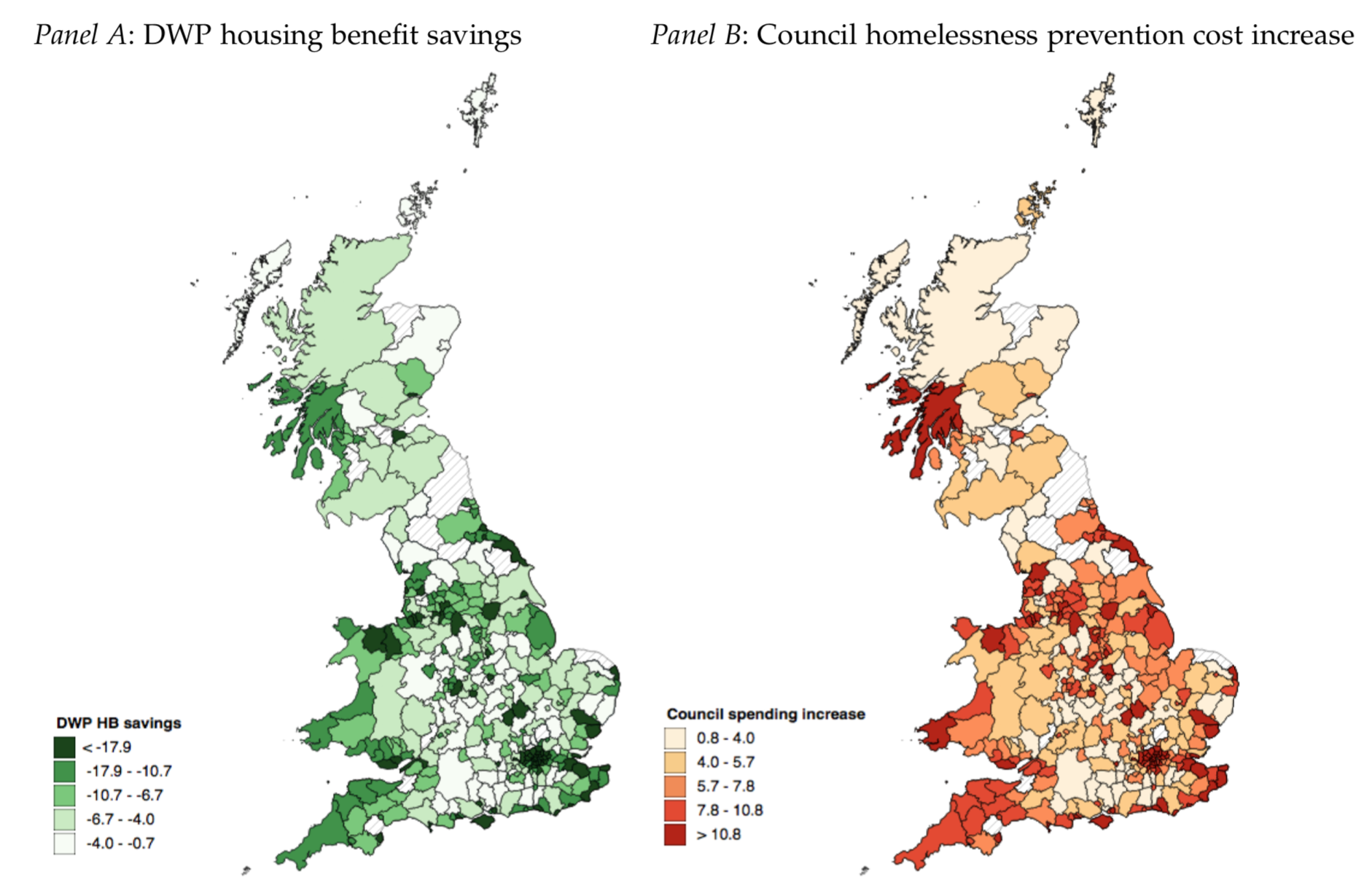Homelessness and precarious living conditions are on the rise across much of the Western world.
This column examines the impact of a shock to the affordability of rent in the private sector in the UK, in the form of a cut in housing subsidies for low-income households, on homelessness and insecure living conditions as well as on democratic participation.
The findings suggest that the cut was, to a large extent, a false economy.
The net fiscal savings for the central government were markedly offset by significantly higher local government spending to meet statutory obligations for prevention of homelessness.
The cut also led to widespread distress among benefit claimants, some of whom went into rent arrears and were forcefully displaced from their homes.
Figure 2 Cost-benefit analysis: Implied fiscal savings to central government from housing benefit cut versus higher council spending on homelessness (pounds per resident household)

Our calculations denote that in the case of the median (mean) council, for every £1 saved in lowering spending on housing benefit, 75p (53p) is spent on preventing homelessness or on housing individuals at risk of becoming homeless in temporary accommodation. The further indirect social and economic costs due to the potential adverse effects on outcomes, especially for children brought up in insecure conditions, likely weigh in even further.
Continue readingLabels:
homelessness, housing_subsidies, housing_benefit, low-income_households, UK, Brexit, rent_affordability.
No comments:
Post a Comment